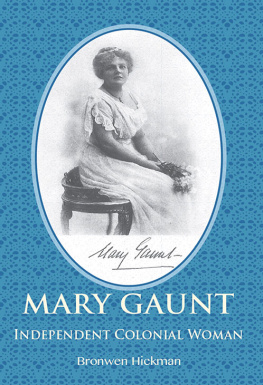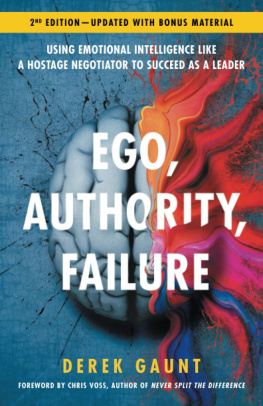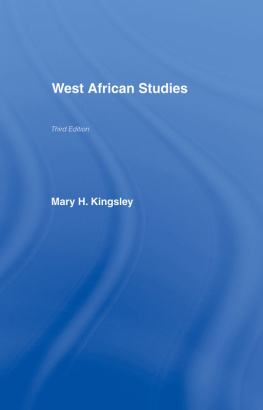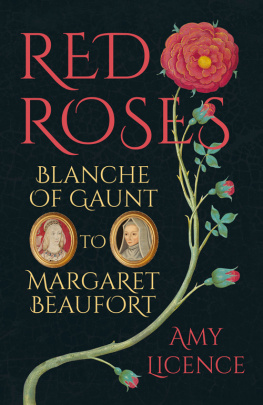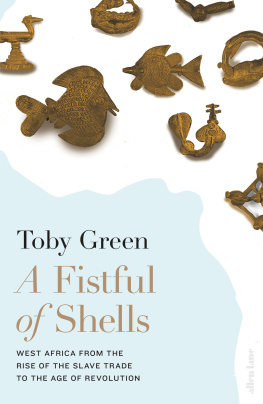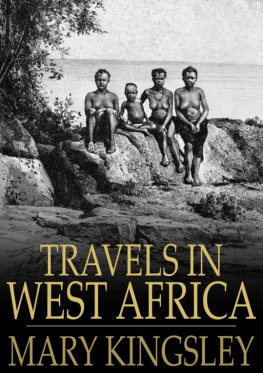DEDICATION
To those who have helped me I dedicate this record of my travels in West Africa. Without their help I could have done nothing; it was always most graciously and kindly given and I know not how to show my appreciation of it. Evermore thanks, the exchequer of the poor, is all I can give in return, unless some of them will take this book in very inadequate payment. Sir Charles Lucas, the head of the Colonial Office, gave me letters of introduction, Elder Dempster and Co. gave me a free passage, their captains and their officers put themselves out to help me, Sir George Denton welcomed me to West Africa, and after these comes a long string of people who each and all contributed so much to my welfare that I feel myself ungracious not to mention them all by name. I must thank Messrs Swanzy and Co., who helped me up the Volta and across the unknown country on the German border, and I were churl indeed if I did not remember those men and women of another nation, who received me out of the unknown, fed me, welcomed me, and smoothed my way for me. To each and all then, with this dedication, I offer my most grateful thanks.
ALONE IN WEST AFRICA
CHAPTER ISONS OF THE SEA WIFE
Hereditary taste for wanderingA first adventureLittle girls you must not be tiredHow Carlo was captured by savages in West AfricaLife in BallaratNothing for a woman to do but marryMarriagePlans for wandering twenty years henceLife in WarrnamboolWidowhoodMay as well travel now there is nothing leftLondon for an aspirant in literatureStony streets and drizzling rainScanty purseVisit to the home of a rich African traderSmall successesAt last, at last on board s.s. Gando bound for the Gambia.
There dwells a wife by the Northern Gate,
And a wealthy wife is she;
She breeds a breed o' rovin' men,
And casts them over sea.
S ometimes when people ask me with wonder why I went to West Africa, why I wanted to go, I feel as if that wife must have grown old and feeble and will bear no more men to send across the sea. I hope not. I trust not. More than ninety years ago she sent my mother's father into the Honourable East India Co.'s service, and then, in later years with his ten children to colonise Van Diemen's Land. Nearly sixty years ago she sent my father, a slim young lad, out to the goldfields in Australia, and she breathed her spirit over the five boys and two girls who grew up in the new land. I cannot remember when any one of us would not have gone anywhere in the world at a moment's notice. It would not have been any good pointing out the dangers, because dangers at a distance are only an incentive. There is something in the thought of danger that must be overcome, that you yourself can help to overcome, that quickens the blood and gives an added zest to life.
I can remember as a small girl going with my sister to stay with an uncle who had a station, Mannerim, behind Geelong. The house had been built in the old days of slabs with a bark roof, very inflammable material. I loved the place then because it spoke of the strenuous old days of the Colony. I love the memory of it now for old times' sake, and because there happened the first really exciting incident in my life.
It was a January morning, the sky overcast with smoke and a furious hot wind blowing from the north. The men of the household looked out anxiously, but I sat and read a story-book. It was the tale of a boy named Carlo who was wrecked on the coast of West Africanice vague location; he climbed a cocoa-nut treeI can see him now with a rope round his waist and his legs dangling in an impossible attitudeand he was taken by savages. His further adventures I do not know, because a man came riding in shouting that the calf paddock was on fire and everyone must turn out. Everyone did turn out except my aunt who stayed behind to prepare cool drinks, and those drinks my little sister and I, as being useless for beating out the flames, were sent to carry to the workers in jugs and billies.
Now little girls, said my aunt who was tenderness and kindness itself, remember you are not to get tired.
It was the first lesson I really remember in the stern realities of life. We had hailed the bushfire as something new and exciting; now we were to be taught that much excitement brings its strenuous hard labour. The fire did not reach the house, and the men and women got their drink, but it was two very weary, dirty, smoke-grimed and triumphant little girls who bathed and went to bed that night. I never finished the story of Carlo. Where he went to I can't imagine, but I can't think the savages ate him else his story would never have been written; and from that moment dated my deep interest in West Africa.
We grew up and the boys of the family went a-roving to other lands. One was a soldier, two were sailors, and the two youngest were going to be lawyers, whereby they might make money and go to the other ends of the world if they liked. When we were young we generally regarded money as a means of locomotion. We have hardly got over the habit yet. Only for us two girls was there no prospect. Our world was bounded by our father's lawns and the young men who came to see us and made up picnic parties to the wildest bush round Ballarat for our amusement. It was not bad. Even now I acknowledge to something of delight to be found in a box-seat of a four-in-hand, a glorious moonlight night, and four horses going at full speed; something delightful in scrambles over the ranges and a luncheon in the shade by a waterhole, with romantic stories for a seasoning, and the right man with a certain admiration in his eyes to listen. It was not bad, but it was not as good a life as the boys of the family were having, and it was giving me no chance of visiting the land Carlo had gone to that had been in my mind at intervals ever since the days of my childish bushfire.
There was really nothing for a woman but to marry, and accordingly we both married and I forgot in my entrance into that world, which is so old and yet always so new, my vague longings after savage lands.
I wonder sometimes would I have been contented to lead the ordinary woman's life, the life of the woman who looks after her husband and children. I think so, because it grew to be the life I ardently yearned for. The wander desire was just pushed a little into the back-ground and was to come off twenty years hence when we had made our fortune. And twenty years looked such a long long while then. It even looks a long time now, for it has not passed, and I seem to have lived a hundred years and many lives since the days in the little Victorian town of Warrnambool when my handsome young husband and I planned out our future life. But I was nearer to Carlo's land than I thought even then, and if I could have peeped into the future I would only have shrunk with unspeakable dread from the path I must walk, the path that was to lead me to the consummation of my childish hopes. In a very few years the home life I had entered into with such gladness was over, my husband was dead, and I was penniless, homeless, and alone. Of course I might have gone back to my father's house, my parents would have welcomed me, but can any woman go back and take a subordinate position when she has ruled? I think not; besides it would only have been putting off the evil day. When my father died, and in the course of nature he must die before me, there would be but a pittance, and I should have to start out once more handicapped with the added years. Again, and I think this thought was latent beneath all the misery and hopelessness that made me say I did not care what became of me, was I not free, free to wander where I pleased, to seek those adventures that had held such a glamour for me in my girlhood. True, I had not much money with which to seek them. When everything was settled up I found if I stayed quietly in Australia I had exactly thirty pounds a year to call my own. Thirty pounds a year, and I reckoned I could make perhaps fifty pounds by my pen. My mother pointed out to me that if I lived with my parents it would not be so bad. But it was not to be thought of for a moment. The chance had come, through seas of trouble, but still it had come, and I would go and see the great world for myself. I thought I had lived my life, that no sorrow or gladness could ever touch me keenly again; but I knew, it was in my blood, that I should like to see strange places and visit unknown lands. But on thirty pounds a year one can do nothing, so I took a hundred pounds out of my capital and came to London determined to make money by my pen in the heart of the world.




